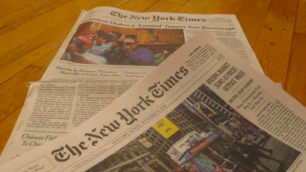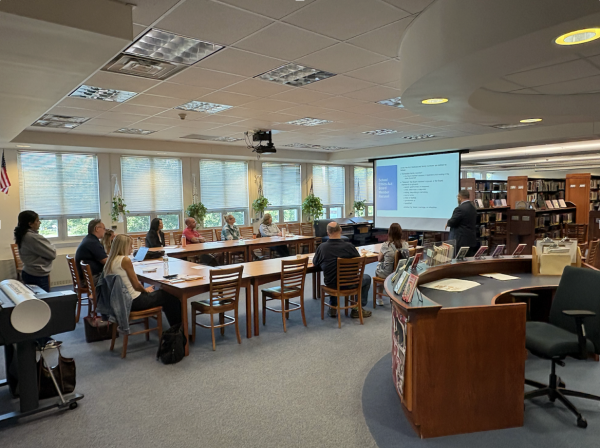Politics…A Hot Topic at Hills?

As students at Hills approach or reach the legal voting age of 18, politics begin to impact each and every student more and more. Politics starts to become something that students think about every day.
I recently reached out to a few members of the Cowboy Community with strong opinions on the topic to understand how people feel about discussing politics at school. Throughout my conversations, they all agreed that the open discussion of politics should definitely be allowed at Hills, as long as it is doesn’t cause an all out “opinion-war”.
Ms. Horn, a history teacher at Hills, mentioned that we should encourage people to, “disagree with each other respectfully.” All politics should be discussed within reasonable bounds. For example, when discussing politics with friends, your opinion should not be forced upon them, for they have the right to their own opinions.
In an email conversation with Bennett Bierman, the SGA president, he wrote, “I would avoid discussing politics too much . . . with those who are not quite comfortable with the topic since one’s political beliefs are definitely a personal subject.”
While discussing politics at school you have to make sure that you are being careful with what you are saying. There are situations where you are allowed to strongly, not disrespectfully, voice your opinion, such as The National Walkout last school year on March 14th. Opportunities like this one to congregate with similar-minded peers are perfect times to discuss and even peacefully protest politics.
Hills principal, Mr. deMarrais, said, “ . . . there is no better place to engage in reasonable political discourse than in school.”
The word “reason” has been a common theme throughout all of the responses.
Based on interactions with my peers, many freshmen at Pascack Hills don’t seem to care much about the world outside of their little bubble. However, there are some freshmen who do care about more than what video game they’re going to play or what outfit they’re going to wear. Even those who don’t seem to care about politics might have an opinion on it, but aren’t so comfortable with sharing all of the time.
When asked whether he finds himself talking about politics with his peers, Ishaan Makhija started by saying that he doesn’t normally talk to anyone inside or outside of school about politics, but “if someone prompts me to talk about politics . . . I will [talk about it] with them.”
Whether you are somebody who constantly puts their opinions out in the open, or you generally like to keep it to yourself, your voice is perhaps the most important part of you and who you are as an individual. However, if you decide to talk about controversial subjects, like politics, you can most definitely heed the advice that Principal deMarrais gave to teachers and administrators to, “ … always approach any political conversations from a balanced perspective with the intent to educate and inform, not to persuade or dissuade [others].”












































